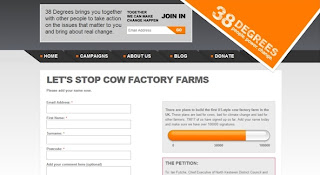Web 2.0 means that everyone is communicating online together. As this happens it is becoming increasingly easy for companies to track our behaviour. In this new era of ‘Dataveillance’ companies are creating data-bases full of information about everything we do online; from emails, what we search for, buy and anything else we happen to look at. They are creating a digital footprint for each online user. This is one person’s view of privacy;
Online security is hugely important to consumer and take so much care when setting up online banking or shopping online. However many don’t realise that all of the information you write online are stored for companies’ benefits.
Search engines such as Google as well as social networking sites such as Facebook, Twitter and Foursquare say they are giving us free content but they are using our personal information for monetary gain. Facebook’s policies mean that they own everything posted on the site including all of your information (ref reading). As no one reads the small print many people don’t even know this is happening. This makes Facebook more attractive to advertise on than any other websites as they can show your advert only on certain pages depending on which demographics the advertiser is targeting.
There are massive advantages of dataveillance for brands. Facebook makes its revenue from using the data to sell to advertisers and Twitter is planning to do the same thing in the future so it can start making money rather than operating at a loss. It not only benefits social networks but can be massively beneficial to every brand. They can reduce costs dramatically by targeting their exact audience rather than placing a banner ad on a website that will be irrelevant to many users. Companies such as Match.com can advertise on Facebook, targeting single over 40’s and put an ad straight onto their page. They can then link you to people that have the same interests through Facebook’s data as well as the data they already have. This could also be good for the consumer as this way they are more likely to find a date with common interests.
On the other hand brands could be seen in a negative light by a lot of consumers. Brands could get a bad public image if people think they are spying on them. Google admitted in 2010 that their Street View cars had been collecting personal information from non-password protected Wi-Fi networks since 2006. This was very worrying for consumers as they don’t know what kind of information that Google has.
There is debate about whether dataveillance is ethical or not. Brands such as Facebook do say in their terms and conditions that they will use consumer’s information for targeted advertising. However many users do not read the small print and therefore they don’t realise that their information is being used in this way. I think it is important that consumers know this is happening, so governments should have some kind of regulation meaning that brands should made more obvious that they are using these techniques. I agree with Joseph Donahue who argues that if people are unaware that they are being monitored they are likely to be unaware that their information is being shared with other sources. This means that anyone could have information about them and they don’t know it. Some states in America you can’t get married if you have an outstanding parking ticket. This is madness. How do they know all of this information about you? However in terms of online dataveillance I believe that as long as consumers are aware, it is ethical as targeted advertising can be a benefit to both brands and consumers.








